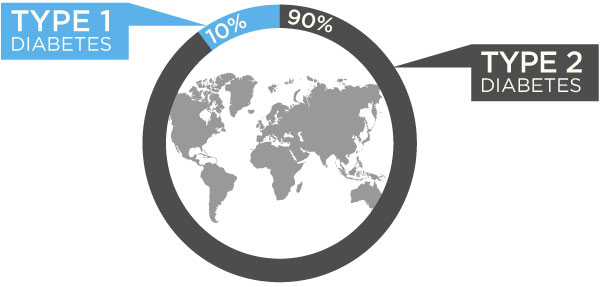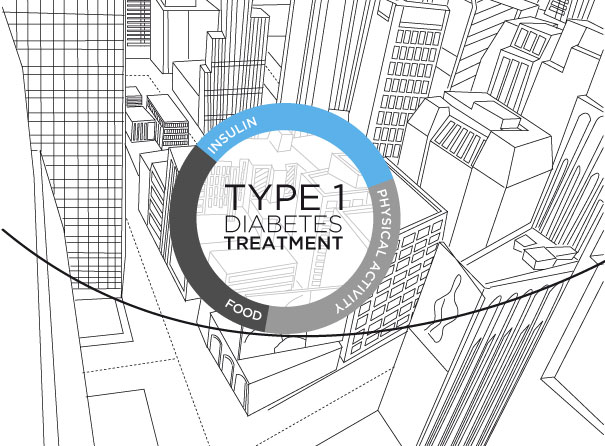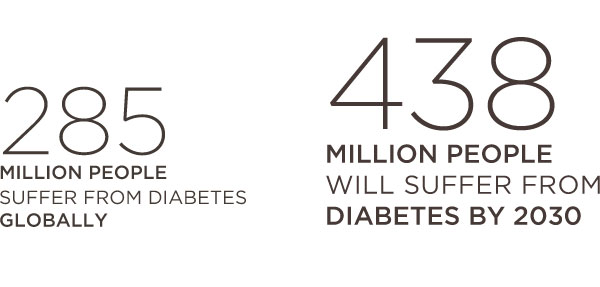Diabetes
Diabetes is a chronic (lifelong) disease, characterized by high blood glucose levels, that occurs when the pancreas [TYPE 1 DIABETES] does not produce insulin or not enough or when the body [TYPE 2 DIABETES] cannot effectively use the insulin it produces. Insulin is a hormone that is needed to convert sugar and other food into energy needed for daily life.
“Diabetes doesn’t only affect your body. It affects your mind, your emotions, your life“.

TREATMENT/ The aim of T1D treatment is to keep blood glucose levels as near to normal as possible thanks to a healthy diet, physical activity, multiple daily insulin injections and home blood glucose testing a number of times per day.

Everyday the diabetic patient aims to reach a proper balance between three main factors: insulin, food and physical activity. Patient education, understanding, and participation is vital, since the complications of diabetes are far less common and less severe in people who have well-managed blood sugar levels.
SOCIAL IMPACT/ Diabetes is fast becoming the 21st century’s major public-health concern: ”Diabetes, is becoming a crisis. The crisis. It’s big, it’s scary, it’s growing and it’s very, very expensive. It’s clearly an epidemic, and it could bring the health service to its knees. Something really does need to happen” (Baroness Young, the chief executive of Diabetes UK ).

Globally an estimated 285 million people had diabetes (2010): its incidence is increasing rapidly, and by 2030, this number is estimated to almost double. Diabetes mellitus occurs throughout the world, but is more common (especially type 2) in the more developed countries. The increase in incidence in developing countries follows the trend of urbanization and lifestyle changes, perhaps most importantly a “Western-style” diet.
